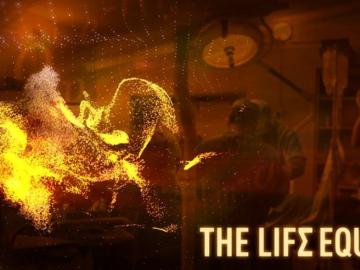
The Life Equation
FILM SCREENING AND Q&A With the filmmaker Rob Tinworth
Emmy-winning filmmaker Rob Tinworth will present The Life Equation, apowerful new documentary about global health in an era of Big Data. A Q&A session will follow. The Life Equation is supported by the Pulitzer Center.
Event co-sponsored byBWH Division of Global Health Equity.
Wednesday 12 July, 3:30pm
Harvard T.H. Chan School of Public Health, Kresge G2
677 Huntington Ave, Boston
The Life Equation addresses the complex ethical questions that we face in global health in the era of big data. The film travels from Guatemala to Nepal to Seattle sharing stories of patients, caregivers and scientists.
In 2009, Bayalpata Hospital was an abandoned shell in a remote corner of Nepal. It was brought back to life by Possible, an American NGO. Each day, hundreds of patients flow through its corridors, but the doors to the newly renovated operating room remain padlocked.
The hospital needs an MDGP, a doctor who can also perform C-sections. But persuading someone to live in such a remote place is difficult. Possible’s first hire quit within 24 hours of arriving.Now Dr Shree Ram Tiwari is stepping up to the plate. To provide life-saving surgeries here, Possible must find a way to entice him to stay for the long run.
Dr Peter Rohloff first traveled to Guatemala one idle summer to practice his Spanish. He was surprised to learn the majority of the population are of Mayan descent. He’d come to a country to learn a language they didn’t even speak. So instead, he decided to learn Kaqchikel and K’iche’. He founded Wuqu’ Kawoq (now the Maya Health Alliance), and began providing health services in indigenous languages. He leads a double life, shuttling between Boston’s Brigham & Women’s Hospital and his clinics in Guatemala. Rohloff is on the front lines, working with those on the receiving end of health policy decisions. The story of one of his patients, Crecencia Buch, shows that in global health, there are no easy answers.
In Guatemala, Crecencia Buch, an impoverished Mayan woman, is battling cancer. Her life depends on decisions made by doctors and donors, decisions increasingly driven by Big Data. It's a scientific approach that cuts through the emotion and promises to optimize health care delivery, transforming the lives of hundreds of millions of people. But what, and who, gets lost in all the number crunching?
In 1996, the supercomputer ‘Deep Blue’, capable of evaluating over 200 million positions a second, beat reigning chess champion Garry Kasparov. Twenty years on, computers are much, much faster. What if we could take all that power and apply it not to a game of chess, but to global health?
In this era of Big Data, perhaps an algorithm could analyze all the options and pick the best move for us. It would transform the lives of a billion people with no access to health care. But what, and who, is lost in the number crunching? With the rapid development of processing power over the last decade, there may be a new way to improve health care. Powerful computers can analyze immense data sets and determine which interventions will produce the biggest net benefit.
“Impossibility is an assumption. Part of the excitement of being in global health is that we get to challenge that boundary.” PETER ROHLOFF
Watch the trailer: LifeEquationFilm.com